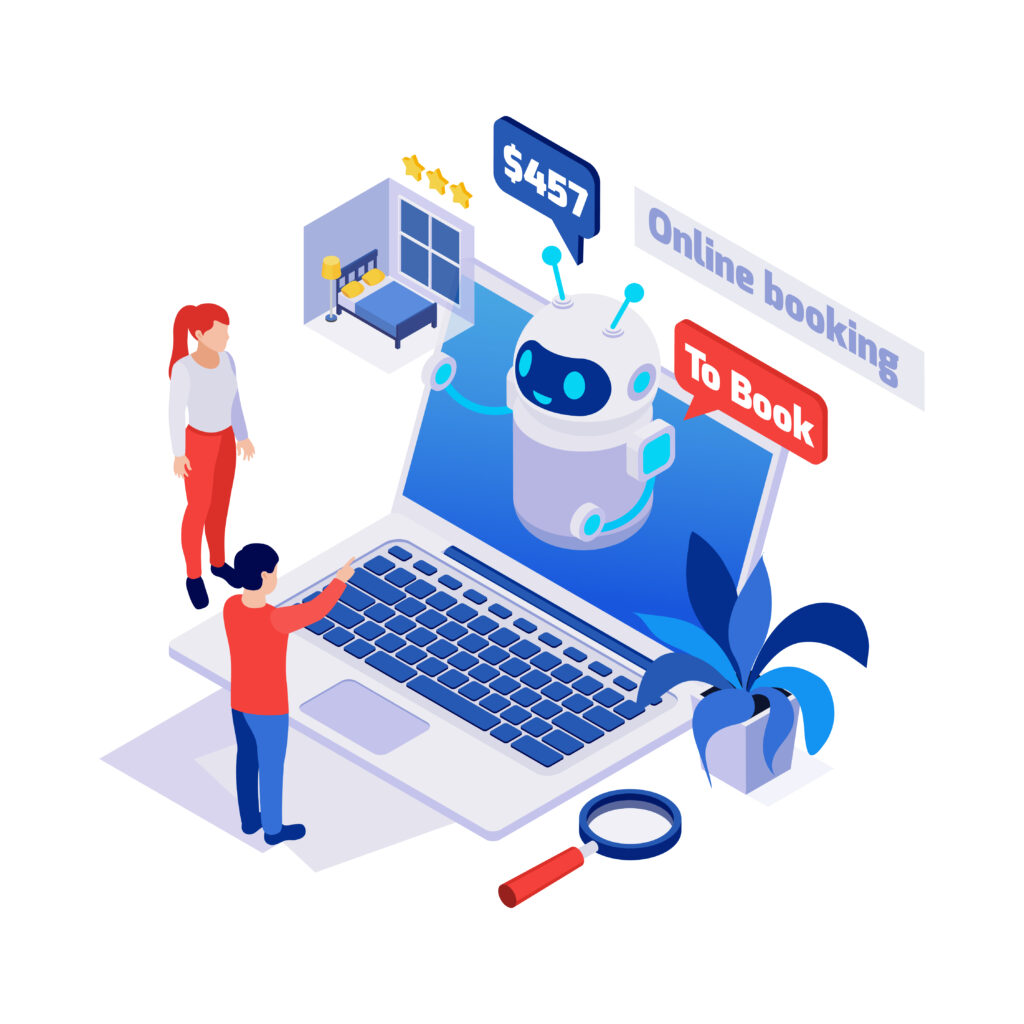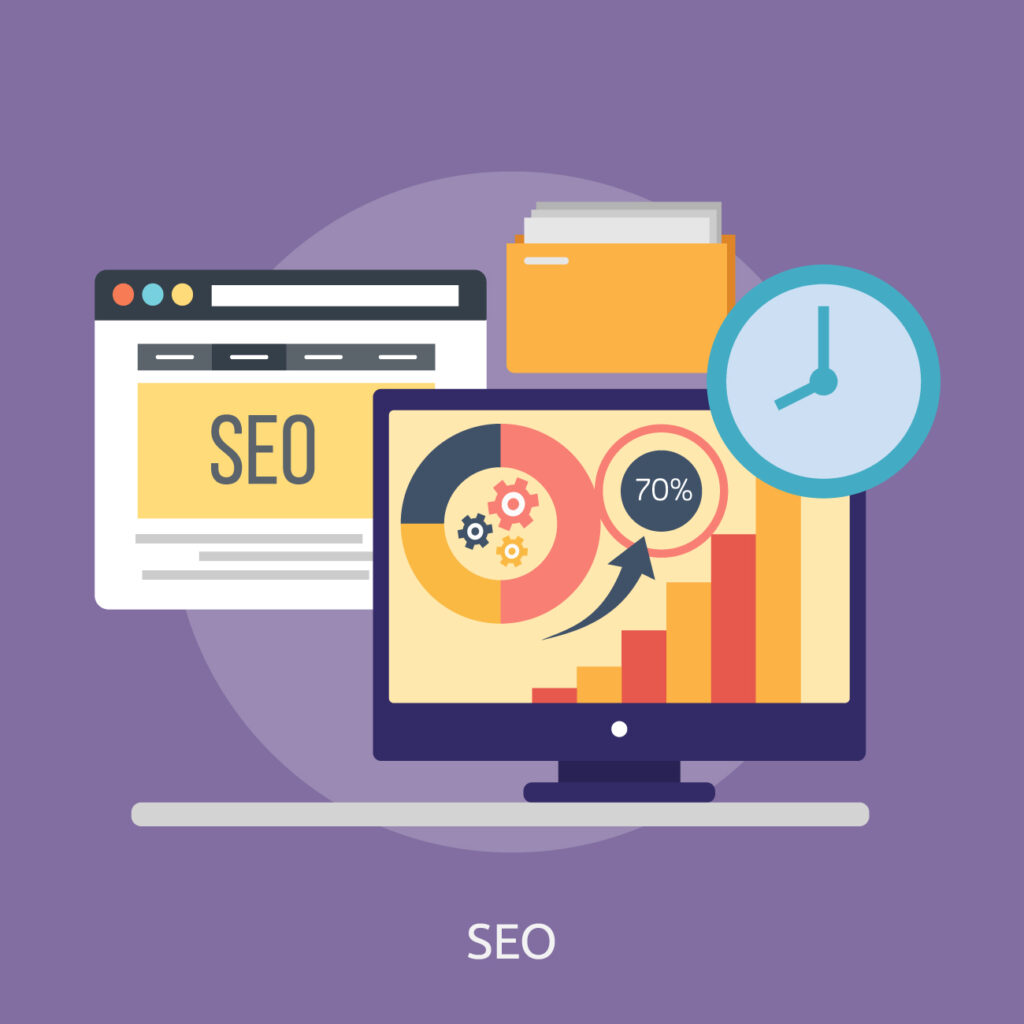The digital world is evolving rapidly, and staying ahead in the game requires innovative strategies. One such strategy is using Artificial Intelligence (AI) for Search Engine Optimization (SEO). AI is transforming how we approach SEO, making it more efficient and effective. In this guide, we’ll explore how to use AI for SEO, the benefits it offers, and the tools that can help you automate your SEO tasks.
Understanding AI in SEO
AI in SEO involves using machine learning algorithms and data-driven tools to enhance your website’s visibility on search engines. It helps in analyzing data, predicting trends, and automating routine tasks, allowing you to focus on strategic planning and decision-making.
What is AI in SEO?
AI in SEO refers to the integration of artificial intelligence technologies to optimize search engine strategies. These technologies include machine learning, natural language processing, and advanced data analytics. By leveraging these technologies, marketers can gain deeper insights into search behaviors and trends.
AI helps in understanding complex search patterns and user intent more accurately than traditional methods. This understanding allows businesses to tailor their content and strategies to meet the demands of their audience more effectively. The use of AI in SEO is not just about automating tasks, but about gaining a competitive edge through more insightful information.
How AI Enhances SEO
AI enhances SEO by processing and analyzing large volumes of data far more efficiently than humans can. It can identify patterns in user behavior, keyword trends, and content performance that might not be immediately apparent. This capability allows businesses to make data-driven decisions that enhance their SEO strategies.
Moreover, AI can help in refining the content creation process. By understanding what types of content resonate with audiences, AI tools can suggest topics and formats that are likely to perform well. This level of insight enables the creation of content that is not only optimized for search engines but also valuable to users.
The Role of Machine Learning in SEO
Machine learning is a subset of artificial intelligence (AI) that plays a pivotal role in modern search engine optimization (SEO) strategies. It involves training algorithms to learn from data and improve over time without requiring explicit programming. In the context of SEO, machine learning can help in predicting search trends, analyzing competitive landscapes, and suggesting keyword optimizations.
For example, machine learning algorithms can analyze vast datasets to identify which keywords are gaining traction and which are declining. This information is invaluable for businesses looking to stay ahead of the competition. By adapting to machine learning insights, SEO strategies can become more agile and responsive to changing market dynamics.
Benefits of Using AI for SEO
AI offers numerous benefits for SEO by enhancing various processes; understanding how to use AI for SEO effectively can significantly improve your website’s search performance.
Efficiency and Accuracy
AI tools can process vast amounts of data quickly and accurately, enabling informed decision-making. Traditional SEO methods often involve manual data collection and analysis, which can be time-consuming and prone to error. AI, however, automates these processes, allowing for faster and more precise insights.
With AI, marketers can focus on strategic decision-making rather than getting bogged down in data collection and analysis. This shift not only saves time but also enhances the accuracy of the insights derived. Consequently, businesses can implement more effective SEO strategies that yield better results.
Trend Prediction
AI can analyze past data to predict future trends, helping you stay ahead of your competitors. By understanding emerging trends, businesses can adjust their strategies proactively rather than reactively. This foresight is invaluable in a competitive digital landscape where staying ahead of the curve is crucial.
Trend prediction involves analyzing a combination of historical data, current search patterns, and broader market trends. AI tools can synthesize this information to provide actionable insights that help businesses plan their content and marketing strategies. By leveraging AI for trend prediction, companies can position themselves as leaders in their industry.
Task Automation
By automating repetitive tasks, AI frees up your time for more strategic activities. Tasks such as keyword research, content optimization, and performance monitoring can be time-intensive if done manually. AI tools streamline these processes, allowing marketers to focus on creative and strategic elements of their campaigns.
Automation not only saves time but also reduces the risk of human error, resulting in more consistent and reliable outcomes. This efficiency enables businesses to allocate their resources more effectively, enhancing overall productivity. By embracing automation, companies can scale their SEO efforts without compromising quality.
Enhanced User Experience
AI can analyze user behavior to optimize your website for a better user experience, which is a crucial factor for SEO. Understanding how users interact with your site allows you to make adjustments that enhance usability and engagement. This focus on user experience is increasingly important as search engines prioritize sites that offer value to their users.
AI tools can provide insights into various aspects of user experience, including site navigation, content relevance, and load times. By addressing these factors, businesses can enhance their SEO rankings while also providing a more seamless experience for their visitors. Ultimately, an improved user experience leads to higher satisfaction and increased conversions.
AI SEO Tools You Should Know
Several AI-powered tools are available to enhance your SEO strategy. Understanding how to use AI for SEO with these tools can help you achieve better rankings and improved online visibility. Here are some popular ones:
1. Content Creation and Optimization
MarketMuse
MarketMuse utilizes AI to analyze your content and suggest improvements to enhance relevance and increase your ranking potential. It helps in identifying content gaps and provides topic suggestions. By understanding what is missing in your content strategy, MarketMuse enables you to create comprehensive content that meets user needs.
The tool evaluates content based on various factors, including relevance, readability, and keyword usage. By providing detailed insights and recommendations, MarketMuse helps in crafting content that resonates with both users and search engines. This comprehensive approach to content optimization ensures that your material stands out in a crowded digital space.
Clearscope
Clearscope optimizes your content by providing insights into what makes top-ranking pages successful. It suggests keywords and topics to include in your content. By analyzing high-performing content, Clearscope helps you understand what elements contribute to their success and how you can emulate them.
The tool’s data-driven approach allows for more strategic content creation. By incorporating Clearscope’s recommendations, you can enhance the relevance and authority of your content, resulting in improved SEO performance. This focus on data-backed insights ensures that your content is not only optimized for search engines but also valuable to your audience.
2. Keyword Research
BrightEdge
BrightEdge utilizes AI to offer keyword recommendations and provide valuable insights. It helps you understand what your audience is searching for, allowing you to target the most relevant keywords. By leveraging AI, BrightEdge offers a deeper understanding of keyword trends and search intent.
The tool’s comprehensive data analysis capabilities allow you to identify high-value keywords that align with your business goals. By focusing on these keywords, you can improve your search rankings and attract more targeted traffic. BrightEdge’s insights ensure that your keyword strategy is both practical and efficient.
SEMrush
SEMrush offers AI-powered keyword research and analysis tools. It provides data on search volume, keyword difficulty, and competitive analysis. By understanding the competitive landscape, SEMrush helps you identify opportunities to gain an edge over your rivals.
The tool’s detailed reports offer insights into which keywords are driving traffic and how you can optimize your strategy to capitalize on them. By using SEMrush, you can refine your keyword targeting and enhance your overall SEO strategy. This data-driven approach ensures that you make informed decisions, leading to better results.
3. SEO Automation
RankScience
RankScience automates A/B testing for SEO, helping you identify what changes improve your rankings. It continuously analyzes your website’s performance and provides suggestions for optimizations. By automating the testing process, RankScience allows you to implement changes quickly and assess their impact.
This automation enables more agile SEO strategies that can adapt to evolving trends and user behavior. By understanding what works and what doesn’t, you can refine your approach and achieve better results. RankScience’s continuous analysis ensures that your SEO strategy remains dynamic and effective.
Frase
Frase uses AI to automate content research and creation. It can generate content briefs and suggest topics based on search intent. By understanding user queries and search patterns, Frase enables you to create content that effectively addresses user needs.
The tool’s insights into search intent enable you to craft content that resonates with your audience. By automating the research and creation process, Frase allows you to focus on strategic elements of content marketing. This efficiency not only saves time but also enhances the quality and relevance of your content.
Implementing AI in Your SEO Strategy
To effectively use AI for SEO, you need to integrate it into your existing strategy. Here’s how:
Start with Data Collection
AI works best with data. Begin by collecting data on your website’s performance, user behavior, and competitor analysis. This data will form the foundation of your AI-driven SEO strategy. The more comprehensive your data, the more accurate and actionable your AI insights will be.
Consider using analytics tools to gather data on traffic patterns, user engagement, and conversion rates. This information provides a baseline understanding of your current performance and highlights areas for improvement. By establishing a robust data collection process, you set the stage for a successful AI integration.
Choose the Right Tools
Select AI tools that align with your SEO goals. Whether it’s content optimization, keyword research, or automation, ensure the tools you choose fit your needs and budget. The right tools can enhance your strategy by providing actionable insights and streamlining processes.
Evaluate different AI tools based on their features, ease of use, and compatibility with your existing systems. Consider conducting trials or demos to determine which tools best meet your requirements. By choosing the right tools, you can maximize the benefits of AI in your SEO efforts.
Automate Routine Tasks
Identify repetitive tasks in your SEO process that can be automated. This could include keyword research, content analysis, or performance monitoring. Automation will save you time and reduce the risk of human error. By freeing up resources, you can focus on strategic initiatives that drive growth and innovation.
Consider creating a workflow that incorporates automation tools into your existing processes. This integration ensures that your team can benefit from the efficiencies of automation without disrupting their current operations. By streamlining routine tasks, you enhance overall productivity and effectiveness.
Monitor and Adjust
AI can predict trends and suggest optimizations, but it’s essential to monitor its performance. Regularly review the changes and adjust your strategy as needed to ensure optimal results. Monitoring enables you to evaluate the impact of AI-driven changes and refine your approach based on the data.
Establish key performance indicators (KPIs) to measure the success of your AI integration. These metrics can include search rankings, traffic, and conversion rates. By regularly reviewing these KPIs, you can ensure that your SEO strategy remains aligned with your business objectives and delivers desired outcomes.
Real-World Applications of AI in SEO
AI is not just a buzzword; it’s being used by businesses worldwide to enhance their SEO strategies. Here are some real-world examples:
E-commerce Websites
E-commerce websites use AI to personalize user experiences by analyzing browsing patterns and purchase history. This personalization improves user engagement and boosts SEO rankings. By delivering tailored content and product recommendations, e-commerce sites can increase conversions and customer satisfaction.
AI tools can identify user preferences and suggest relevant products, leading to more meaningful interactions. This personalized approach enhances the shopping experience and encourages repeat visits. By leveraging AI, e-commerce businesses can differentiate themselves in a competitive market and drive growth.
Content Publishers
Content publishers leverage AI tools to optimize their articles for search engines. By analyzing top-performing content, they can create articles that align with user intent and rank higher in search engines. AI helps publishers understand what topics and formats resonate with their audience.
By using AI to analyze user feedback and engagement metrics, publishers can refine their content strategies. This data-driven approach ensures that articles are both relevant and engaging, leading to increased traffic and readership. AI-driven insights enable publishers to stay ahead of trends and maintain a competitive edge.
Local Businesses
Local businesses use AI to optimize their websites for local search results. AI tools help in identifying local search trends and optimizing content accordingly. By understanding local user behavior, businesses can tailor their offerings to meet the specific needs of their community.
AI-driven local SEO strategies involve optimizing for location-based keywords and enhancing online visibility in local directories. By focusing on local search optimization, businesses can attract nearby customers and increase foot traffic. AI provides the insights necessary to establish a robust regional presence and engage with the community effectively.
Challenges and Considerations
While AI offers many benefits, there are challenges to consider:
Data Privacy
AI relies on data, and ensuring data privacy is crucial. Always comply with data protection regulations when using AI tools. Failure to do so can result in legal repercussions and damage to your brand reputation.
Implement robust data privacy policies and ensure that your AI tools are configured to comply with regulations such as GDPR or CCPA. By prioritizing data privacy, you build trust with your audience and protect sensitive information. Transparency and accountability are key to maintaining ethical AI practices.
Complexity
AI tools can be complex, and understanding how to use them effectively may require training. The learning curve can be steep, especially for businesses new to AI technology. Investing in training and support can help teams navigate these complexities.
Consider partnering with AI experts or consultants who can guide you through the implementation process. By leveraging external expertise, you can ensure that your team is equipped to utilize AI tools effectively. This support helps maximize the benefits of AI and overcome potential challenges.
Cost
Some AI tools can be expensive. It’s essential to assess the return on investment before committing to a tool. Consider factors such as potential cost savings, increased efficiency, and revenue growth when evaluating AI solutions.
Conduct a cost-benefit analysis to determine whether the investment aligns with your business goals. By carefully evaluating the financial implications, you can make informed decisions that support long-term growth and success. Consider scalability and flexibility as well, ensuring that the chosen AI tools can adapt to your changing needs.
Conclusion
AI is revolutionizing SEO by making it more efficient and effective. Learning how to use AI for SEO allows you to automate routine tasks, predict trends, and optimize your content to improve your website’s visibility on search engines. However, it’s essential to choose the right tools, monitor performance, and address potential challenges to maximize the benefits of AI in your SEO strategy. Embrace AI, and stay ahead in the competitive digital landscape.
By integrating AI into your SEO efforts, you position your business for success in an increasingly complex digital landscape. The insights and efficiencies gained from AI tools can enhance your strategies and deliver tangible results. As AI continues to advance, staying informed and adaptable will be key to maintaining a competitive edge. Embrace the opportunities that AI presents and transform your SEO strategy for lasting success.
Utilizing AI for SEO provides a significant advantage in today’s competitive digital landscape. From intelligent keyword research to content optimization and targeted link building, AI technologies streamline and enhance SEO efforts. Businesses seeking to maximize their online presence should consider integrating AI tools into their strategies and partnering with expert SEO services to improve their online presence. By leveraging AI-driven insights and automation, brands can achieve higher rankings, attract more qualified traffic, and stay ahead in the evolving world of search engine optimization.
FAQs
1. How does AI assist in discovering the best keywords for SEO?
AI analyzes search patterns and competitor data to identify relevant, high-performing keywords, helping you focus on terms that drive traffic and conversions.
2. In what ways can AI improve content creation for SEO?
AI tools can generate SEO-friendly content ideas, optimize existing pages for target keywords, and ensure content aligns with user intent to boost rankings.
3. Can AI tools help with building quality backlinks?
Yes, AI can identify authoritative sites for backlink opportunities, evaluate link relevance, and automate outreach, making your link-building efforts more efficient.
4. How does AI improve website user experience related to SEO?
By analyzing visitor behavior, AI helps optimize site structure, loading speed, and navigation, which positively impacts SEO performance and user engagement.
5. Is AI effective for optimizing local SEO campaigns?
Definitely. AI can track local search trends, monitor competitor strategies, and tailor content to local audiences, enhancing visibility in specific geographic areas.
Read More
- Is AI Max the Future of Google Paid Search 2025 onwards?
- Google Search AI Max: How It Works and When to Use It?
- Google’s Search Campaign AI Max: What It Is and How It Works?
- What Are Five Marketing Strategies That Retailers Spend Half of Their Annual Budget On?
- Understand What Is Content Mapping in Detail
- How is White Label AI Marketing helping Agencies Win in 2025?







